According to the American Staffing Association, the staffing and recruiting industry is responsible for helping 16 million people per year find new jobs. Given that there are 11,957 recruiting agencies in the U.S. – as of 2023 – that’s a lot of people passing through your agency. It averages out to almost 1,400 hires per year, spread across however many companies for which you handle recruitment.
That’s a massive burden.
To ease the pressure, many recruiting companies turn to software to help them streamline and automate tasks. But which software should you be using in 2026? Read on and you’ll discover 10 of the best recruiting agency software packages available.
Why Do You Need Software for a Recruiting Agency?
You’ve already seen one of the main reasons why recruiting agency software is so vital – your agency helps hundreds of people each year. With so many potential employees – not to mention your business clients – you need software simply to help manage the load. Streamlining processes is vital. But becoming more efficient is far from the only reason that your agency needs software.
Reason 1 – Improving the Candidate Experience
Imagine you’re a candidate at an agency that doesn’t use software. That means you’re relying on the agency to have solid manual processes – never a guarantee. In the worst cases, you may struggle to make appointments or get in touch with a representative. Ultimately, the experience ends up being so bad that you move to an agency that actually seems to care about you.
In short – candidate experience determines your agency’s success.
Using recruiting agency software, you can develop a seamless “behind-the-scenes” experience that ensures candidates are always kept in the loop about potential roles.
Reason 2 – Improved Collaboration
Collaboration is tough in recruitment.
As an agency, you’re collaborating with every candidate that comes through your door, as well as every business you help with hiring. Then, there’s the internal side. Your company likely has marketing, sales, and HR teams, all of whom need to know what your active recruiting professionals are doing.
That’s a lot of teamwork-related balls to be juggling. And if you drop one of those balls, clients and internal departments start to be siloed away from what should be a collaborative process. With software, you can integrate every key player in the hiring process into a central location.
Nobody falls out of the loop.
Reason 3 – Reduce Cost-Per-Hire for Clients
Most of your business clients have a simple goal – hire quality people while spending as little money as possible.
Their spending starts with using your services before they face internal costs related to training and onboarding.
With recruiting agency software, you can automate your internal processes to the point where you make savings you can pass on to clients. Think of it as improving your client’s experience. Much like with improving the candidate experience, a happy client means more work coming your way.
All told, the average business will spend somewhere in the region of $4,000 to bring a single person on board. Imagine what it would mean to your client if you could help them to reduce that cost
What Types of Software Do You Need to Run a Recruiting Agency?
It is essential to choose the right tools in handling tasks related to recruiting agencies. For those who also deal with creative project management, they might find the best creative agency project management software useful, especially in streamlining their work. This will ultimately lead to increased efficiency and productivity.
You can break down the types of software you’ll need for your recruiting agency into four core categories:
- Promotional – This is the type of software you’ll use to advertise a position on behalf of your client. Ideally, the software should integrate with career websites and relevant talent communities, allowing you to develop a pipeline of appropriate talent.
- Applicant Tracking – Several features fall under the applicant tracking banner. These include resume screening – often involving looking for specific keywords – and background checking. You may also use this type of software to track a candidate’s interview performance.
- Client Relationship Management – Recruiting is about building a large talent pool from which you can choose when a client needs to hire somebody. For that, you need client relationship management software. It helps you track a candidate’s status with your agency, as well as their contact details and skills, helping you match them with a company.
- Scheduling Software – Interviews. Meetings with clients. Internal meetings. They all need to be scheduled using software. Relying on simply remembering dates and times leads to meetings being missed.
While many of these software types are available as standalone packages, you’ll also find that several package them into an all-in-one platform. Bonsai’s Recruiting Software is a great example, as it brings scheduling, CRM, and client management features together into one package.
How to Choose the Best Software for a Recruiting Agency

Choices, choices, choices.
That’s one of the main challenges you face when searching for recruiting agency software. With such a wealth of options available, it’s easy to get overwhelmed. So, keep these key considerations in mind when weighing up your options.
The Level of Customization Needed
No two recruiting agencies are the same – what you need from your software may differ from the needs of your competitors. Before you start searching, make a list of everything you want from your software. Use that list to weed out the software packages that don’t fit the bill. As a handy bonus, that list can be your guide when choosing which features you can scrap – saving you money – from larger software.
Integration with Other Software
You likely already use software in your recruiting agency. The problem with introducing new software into the mix lies with integration – will it complement or clash with what you have? Always research the software’s integrations. Ideally, you want something that seamlessly fits into your agency’s current software ecosystem. If it doesn’t, the software needs to justify the replacement of what you have by being better, more cost-efficient, or both.
Take Advantage of Free Trials
Free trials exist for a good reason – they let you try before you buy.
Skipping a trial because a feature list has impressed you is almost always a mistake. You may find yourself spending weeks on installation only to see that the software is too complex or not suitable. Give the software a test – ideally involving as many of your people as possible – using a free trial to see if it’s a good fit.
The 10 Best Recruiting Agency Software Ranked
Now that you know what to look for, let’s get down to important business – choosing the best recruiting agency software. Each of the 10 packages on this list offers something different.
1 – Bonsai
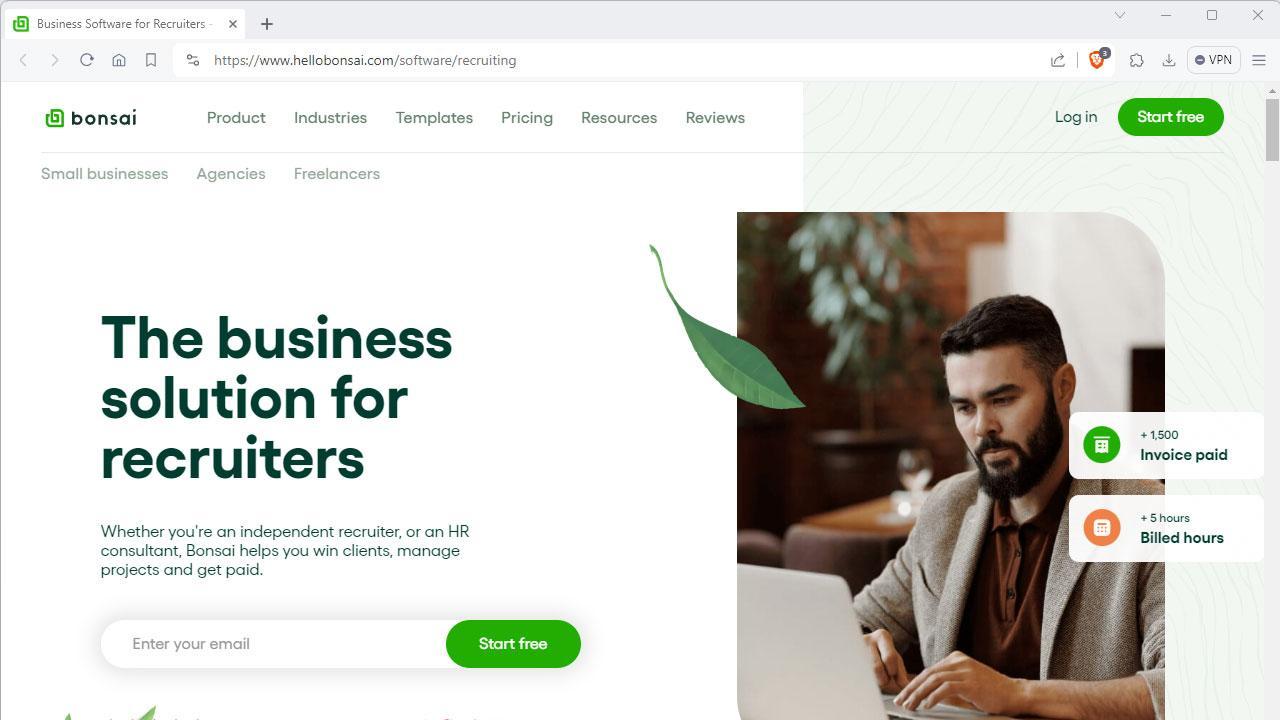
Bonsai’s suite of business management software includes a solution for recruiters that can easily scale to your needs. Independent recruiters, HR teams, and agencies will all find useful tools in an all-in-one package.
Why Is Bonsai a Fit for Recruiting Agencies?
The simple answer is that Bonsai lets you do almost everything under one roof rather than forcing you into buying several software packages. If you need to manage clients, you get the tools with Bonsai. The tool has a client CRM and helps you track your expenses. In short – it covers almost everything you need from recruiting agency software.
What Are Bonsai’s Key Features?
Bonsai’s recruiting software has five core features:
- Client Management – Captures lead information while allowing you to develop surveys.
- Scheduling – Syncs your calendar with other apps – such as Calendly – so you stay on top of appointments.
- Client CRM – Organize all of the data you hold on clients and candidates.
- Contract Management – Bonsai helps you create, edit, and send high-quality contracts and recruiter intake forms.
- Bookkeeping and Billing – Manage your internal finances with bookkeeping tools to track income, expenses, and invoices.
Why Is Bonsai the Best Software for Marketing Agencies?
Bonsai’s amazing CRM helps marketing teams track leads and existing clients, ensuring they send materials as and when needed. It’s a collaborative tool – essential in recruiting – that links your agency’s recruiters with the people who are finding clients.
What Is Bonsai Pricing?
Bonsai offers three pricing tiers, starting at $25 per month for the “Starter” tier and up to $79 for “Business.” The middle tier – “Professional” – costs $39 per month, with all providing a two-month discount if you pay annually.
2 – LinkedIn Recruiter
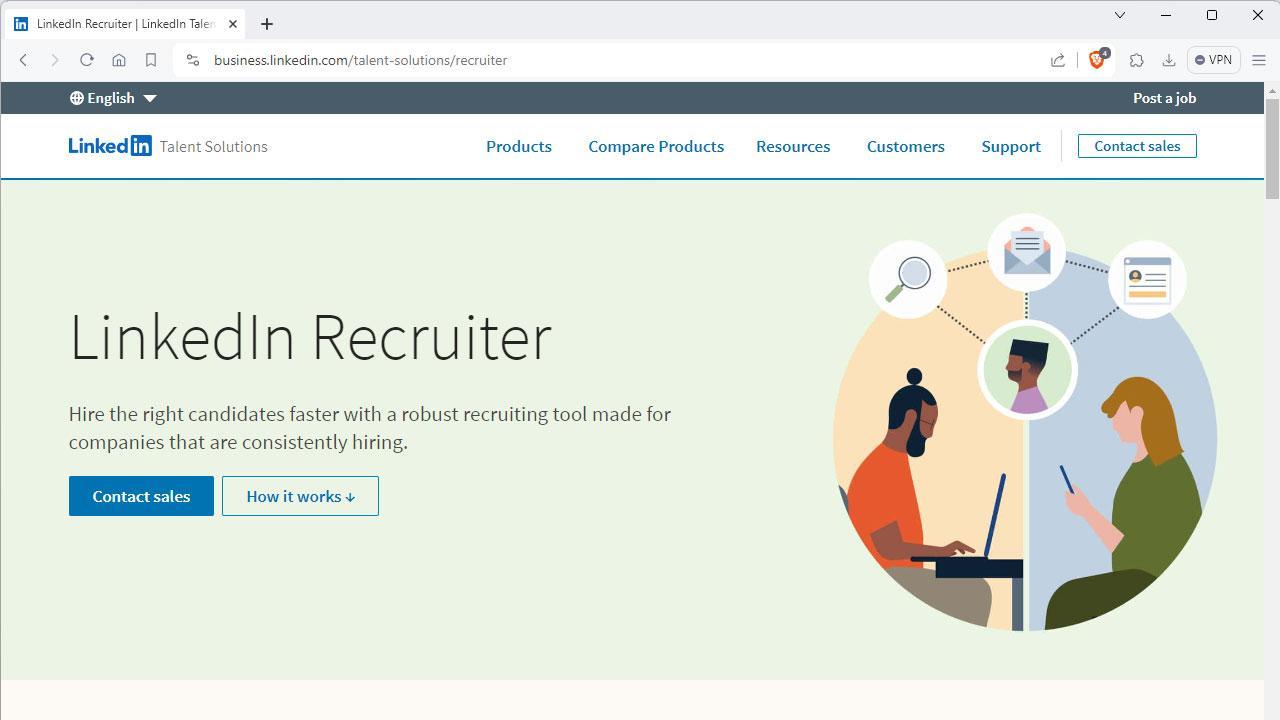
Figure 4 - https://business.linkedin.com
With over 1 billion members spread across 200 countries, LinkedIn is a great talent-finding tool. With LinkedIn Recruiter, the social media platform has developed a tool specifically for agencies.
Why Do You Need LinkedIn Recruiter for Your Recruiting Agency?
It all comes down to sheer volume. The majority of LinkedIn’s members are professional individuals, with 49 million of them actively looking for a job weekly. You won’t find a deeper candidate pool. Of course, it’s easy to get drowned in that pool. For that reason, LinkedIn Recruiter lets you to separate the wheat from the chaff, ensuring you only see suitable candidates.
What Are LinkedIn Recruiter’s Key Features?
LinkedIn Recruiter helps you search through a massive candidate pool using smart recommendations. The more you use it, the more it learns from you and allows you to find more suitable candidates. The tool then lets you contact candidates via InMail – each license comes with 150 – and activate notifications to track promising leads.
What Are LinkedIn Recruiter’s Limitations?
Though LinkedIn Recruiter is great for finding candidates, it features no way to manage your business clients. It’s a useful hiring tool. But it’s far from an all-in-one recruiting agency software solution. Think of it as a lead generator rather than something you can use to run your entire agency.
What Is LinkedIn Recruiter Pricing?
The Recruiter Lite version costs $170 per month for a single license. If you want the professional version of the software, you have to speak to a sales team to work out customized pricing.
3 – MailChimp

When dealing with hundreds of candidates per year, you need automated emailing software to keep in touch. MailChimp fits that bill – it’s one of the most powerful email marketing platforms around.
Why Do You Need MailChimp for Your Agency?
Let’s say your agency has 300 potential candidates. If you want to send just one email a week to those clients, that quickly stacks up to about 1,200 emails a month. All manual. All time-consuming. MailChimp automates mass email delivery to save your recruiters’ time.
What Are MailChimp’s Key Features?
Beyond mass email sending, MailChimp stands out for its customization tools. You can create triggers – ensuring an email is sent out when specific conditions are met – and target emails based on client behavior. The platform also helps you to build email designs, forms, and even landing pages for websites.
What Are MailChimp’s Main Drawbacks?
Every MailChimp plan comes with limited email sends, meaning you’ll end up paying a lot more as you scale. That makes it a problem for large agencies – the bigger your contact list, the more you’ll pay. It’s also worth noting that the website builder – though a nice feature – is simplistic and feels like an afterthought.
What Is MailChimp’s Pricing?
MailChimp offers a Free plan that lets you send up to 1,000 emails per month to a list of 500 contacts. If you need more, its monthly pricing ranges from $13 for the “Essentials” tier, up to a “Premium” tier that starts at $350.
4 – Lattice
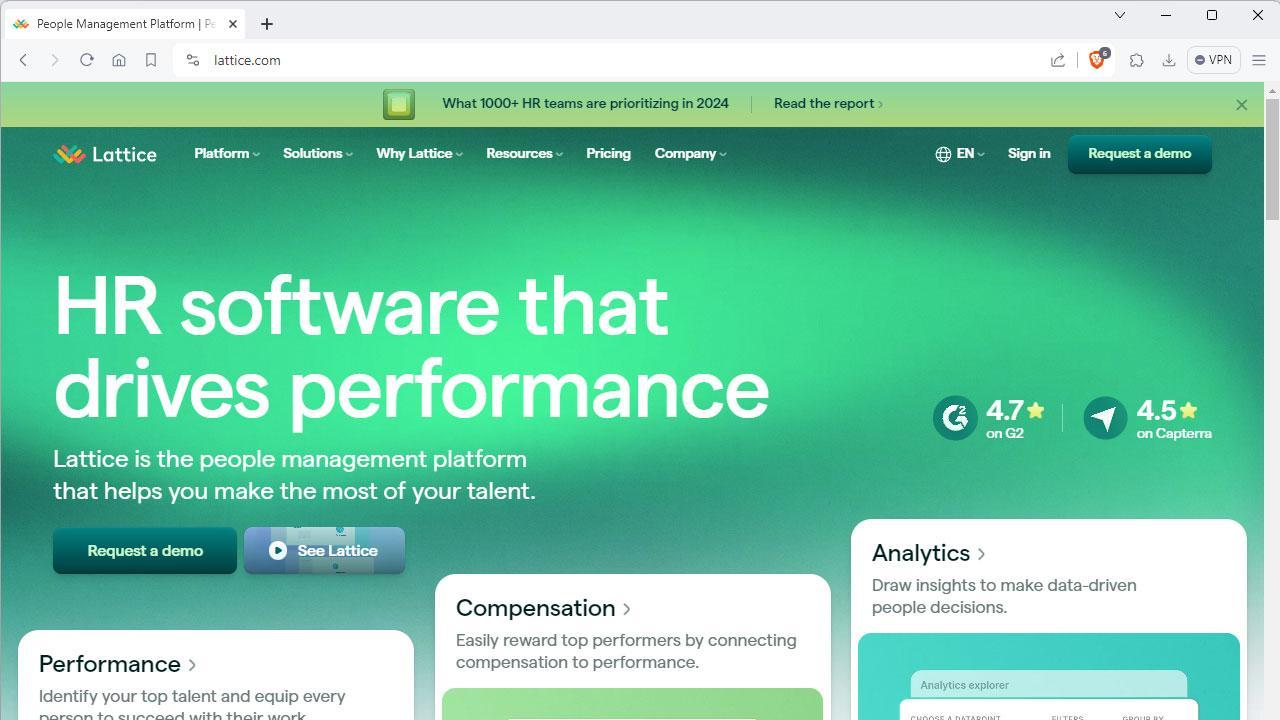
Lattice is as much a people management tool as it is a recruiting agency software. Its features revolve around improving employee engagement – vital when only 36% of people feel engaged in the workplace.
Why Is Lattice a Good Choice for Your Recruitment Agency?
Lattice is useful for the internal side of running a recruitment agency. Its real-time tools provide constant feedback – covering performance and goal management – as well as analytics you can use to make decisions.
What Are Lattices Key Features?
The software allows you to set (and track) goals for your employees. Using in-depth analytics, it facilitates matching your people with the tasks that suit them best and, crucially, tracking their success. Plus, you get access to helpful feedback tools – ideal for maintaining communication between you and your people.
What Are Lattice’s Main Drawbacks?
The obvious drawback is that Lattice isn’t a tool that directly improves how you work with clients. It can’t help you find candidates or place them due to its focus being on internal HR. It’s also not the best for integrations as it isn’t compatible with many pieces of popular HR software.
What Is Lattice’s Pricing?
Lattice operates on a per-person pricing system. Its “Engagement” and “Grow” tiers each cost $4 per month per person, with “Compensation” ramping that up to $6. That means outgoings can soon increase, especially if you have a medium or large employment agency.
5 – Hunter
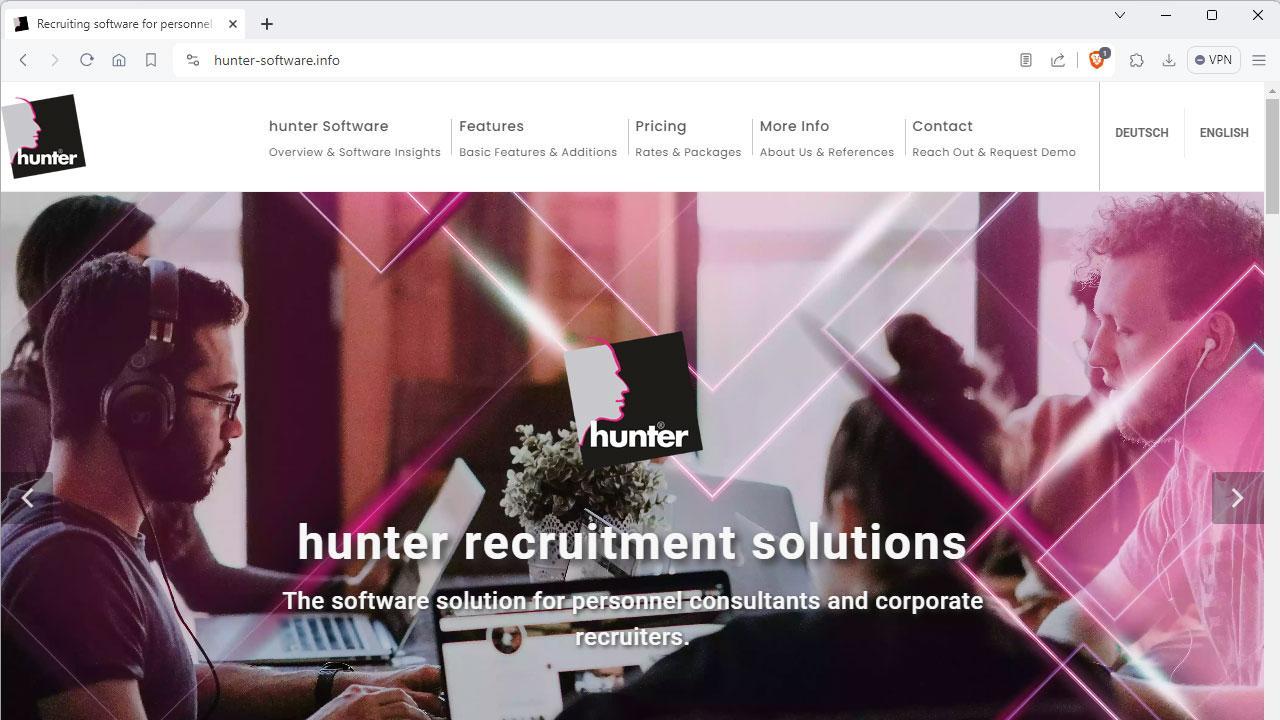
Figure 7 - https://www.hunter-software.info/
Similar to Bonsai’s recruiting agency software, Hunter is an all-in-one package that brings several pieces of software together. However, it’s more focused on the corporate side of the spectrum than its competitors.
Why Is Hunter a Good Choice for Your Recruitment Agency?
It all depends on the type of recruitment you do. Corporate headhunters will find a lot to love about Hunter because of its candidate identification features. More generalized recruiting firms may not receive the same level of value, though.
What Are Hunter’s Key Features?
Hunter features a built-in CRM-like system that helps you to track and manage candidates. That system also lets you maintain correspondence, especially the email you send via its integrated email client. Beyond that, the software has basic project management tools and a customizable analytics-filled dashboard.
What Are Hunter’s Main Drawbacks?
The biggest drawback is pricing – this is one of the more expensive pieces of recruiting agency software around. Its search feature isn’t the best either, especially if you’re looking for an email address. Hunter occasionally delivers empty results for emails that you know you have in the system.
What Is Hunter’s Pricing?
Though it has four tiers, Hunter’s pricing doesn’t vary much. You’ll pay $98 per month for a limited version of the tool, though only an extra $18 per month for its fully unlocked “Enterprise” tier. Each tier comes with the option of a free trial.
6 – Calendly
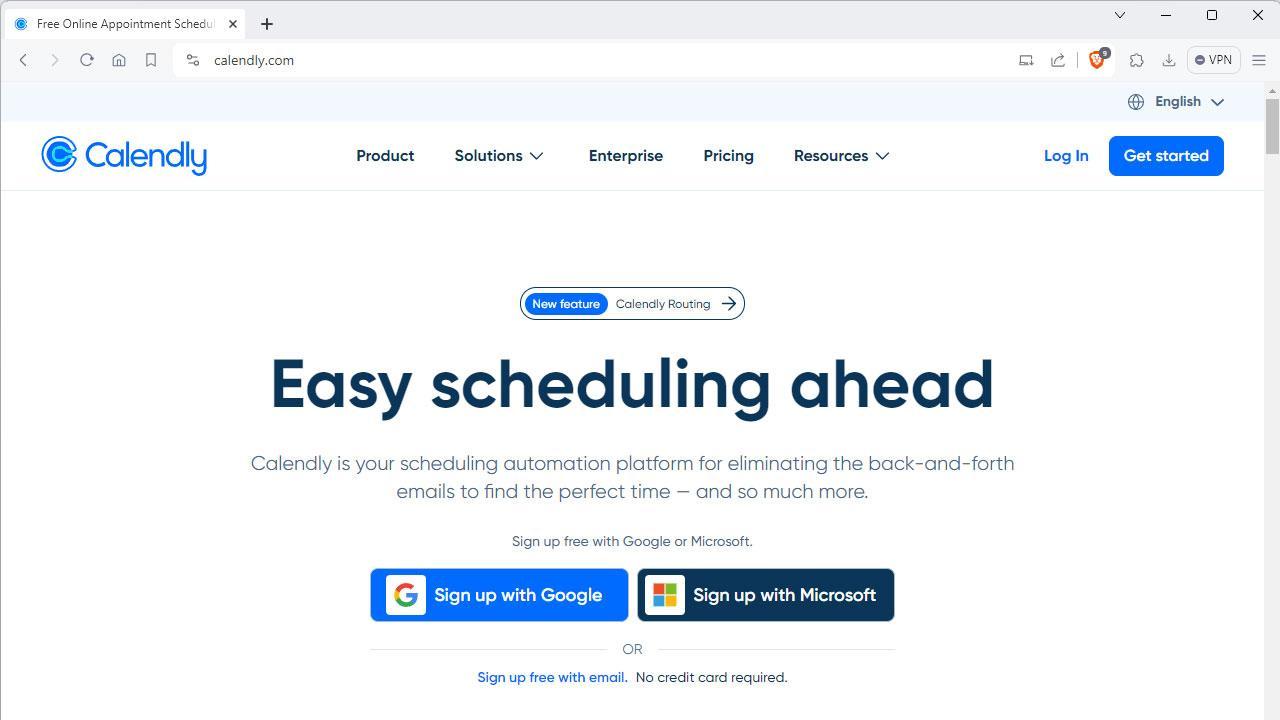
Scheduling is part and parcel of recruiting. You’re holding constant meetings and interviews with clients and candidates, with Calendly separating itself as the scheduling app for your needs. Calendly even integrates with Bonsai, building on that software’s already powerful scheduling tools.
Why Is Calendly a Good Choice for Your Recruitment Agency?
Simple – 11 million meetings are held in the United States every day. Recruiting agency software like Calendly helps your people to track their meetings with clients and candidates. Fewer missed meetings lead to more happy clients.
What Are Calendly’s Key Features?
The software doesn’t just let you block out meeting times for your candidates and clients. It can also be integrated into your website so they can book time with you. All of this is managed within Calendly, as it lets you open (or close) slots while ensuring it doesn’t offer times that are already filled. Each successfully scheduled meeting also comes with notifications.
What Are Calendly’s Major Drawbacks?
Recurring meetings are not the app’s strong point. It’s designed for one-off bookings, with recurring meetings often having to be manually scheduled. However, its user interface doesn’t make it especially easy to customize.
What Is Calendly’s Pricing?
Calendly has a free version, though this only lets you book one type of event (such as interviews) and offers limited reminders. Upgrading to “Standard” costs $10 per seat, with “Teams” increasing that to $16. There’s also an “Enterprise” tier for larger agencies that need a more customized version of the app.
7 – Typeform

With Typeform, you get recruiting agency software that helps you build customized forms – ideal for gathering feedback.
Why Is Typeform a Good Choice for Your Recruitment Agency?
Your agency needs to gather feedback from clients and candidates. Creating paper forms gives you control, but forces you to spend hours manually gathering that feedback. As for basic form-building tools, they limit you in terms of the questions you ask and the types of responses you get. Typeform strips away some of those limits – it’s a form-building and automated feedback-gathering tool.
What Are Typeform’s Key Features?
The most obvious feature is its ability to create interactive forms – customized to your needs – that can slot right into a website. It also integrates with several helpful tools, including the previously mentioned MailChimp, and is pretty simple to use.
What Are Typeform’s Main Drawbacks?
If you value visuals, Typeform may not be for you – it seems to have trouble placing images in its forms. Other than that, the fact that you have to pay more to get extra responses negates every offering unlimited forms. For instance, the $25-per-month “Standard” tier only gives you 100 form responses per month.
What Is Typeform’s Pricing?
Beyond the previously mentioned “Standard” tier, Typeform offers a $50 tier – landing you 1,000 responses per month – and an $83 tier giving you 10,000 responses. Enterprise packages are also available.
8 – ChatGPT
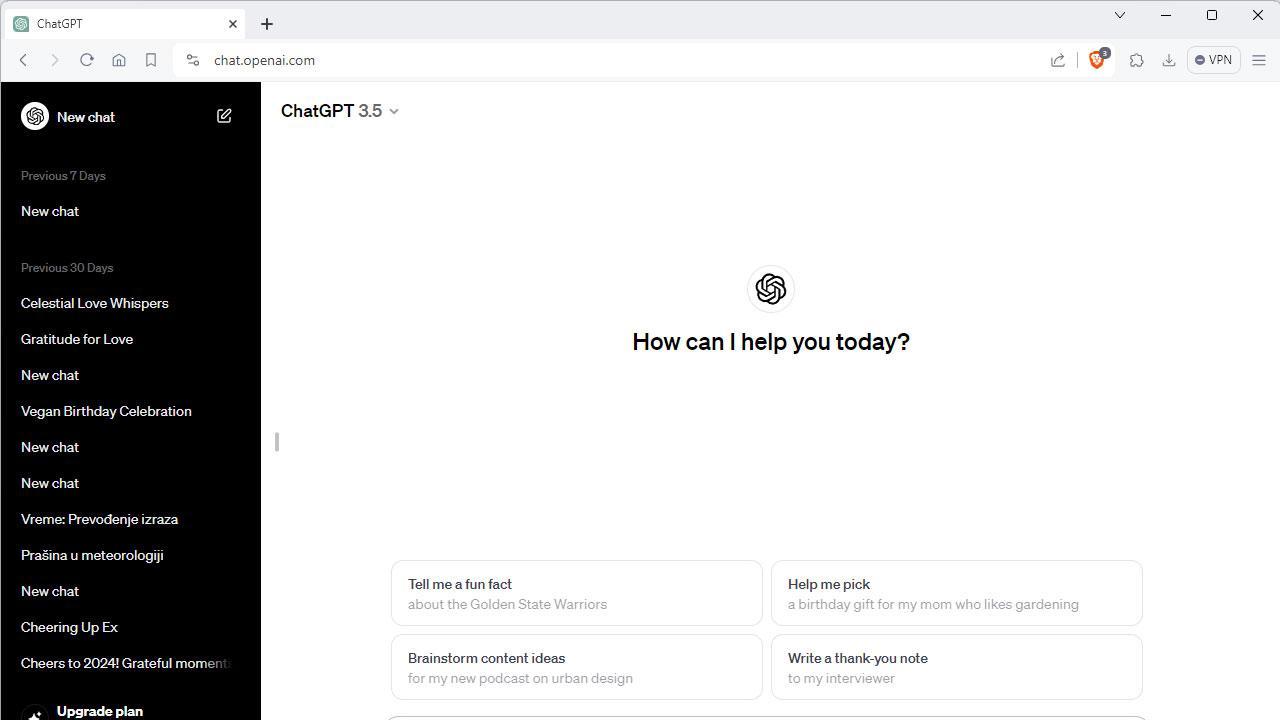
When ChatGPT set the record for the fastest-growing user base ever, it earmarked itself as a powerful recruiting agency software. Its use of AI to generate text can speed up many of your agency’s internal processes.
Why Is ChatGPT a Good Choice for Recruiting Agencies?
It’s all about speed. ChatGPT can generate content – such as job listings and emails – in seconds when a human might take several hours. As a side benefit, it’s also handy for writing editorials and blog posts your agency can use as marketing tools on its website.
What Are ChatGPT’s Key Features?
Enter a request into ChatGPT and it’ll generate a response in whatever form you need. So, you can ask for a job listing relating to X position for Y company and it can handle that for you quickly. Multi-national agencies will also find its multilingual support especially useful.
What Are ChatGPT’s Drawbacks?
Simply put – ChatGPT isn’t always 100% accurate. Its content often includes hallucinations – made-up “facts” – and can go off the rails if you’re trying to stick to a template. You may not need a writer for ChatGPT. But you will absolutely need an editor.
What Is ChatGPT’s Pricing?
Anybody can use the version of ChatGPT that runs on the GPT-3.5 language model for free. But if you want to upgrade to GPT-4, you’ll pay $20 per month for individuals or $25 per month for each user in a team.
9 – Trello

Trello is a recruiting agency software focused on project management above all else. It may lack some of the features seen in more comprehensive packages – like Bonsai – but it makes up for that with simplicity.
Why Is Trello a Good Choice for Recruiting Agencies?
Trello is more of an internal tool focused on enhancing coordination between your agency members. It lets you sort out the basics of project management – including setting and assigning tasks – essentially making it a checklist for your projects.
What Are Trello’s Key Features?
Real-time operation is high on the agenda with Trello. You can add members to a project instantly, with all updates showing up as soon as they’re made. That’s ideal if you need insights from multiple people on how to place a candidate. The software also lets members make notes as they work, taking away one more paper-based task.
What Are Trello’s Major Drawbacks?
While simplicity can be a virtue, it’s not great for larger agencies. Trello lacks customization options, as well as common project management features, such as time tracking. Most advanced functionality you might wish to have has to come from integrations.
What Is Trello’s Pricing?
Trello’s pricing ranges from a free tier – giving you 10 “boards” for each workspace you create – up to $12.50 per month for its “Premium” tier. There’s also an “Enterprise” option, with pricing based on the number of users in your agency.
10 – Notion
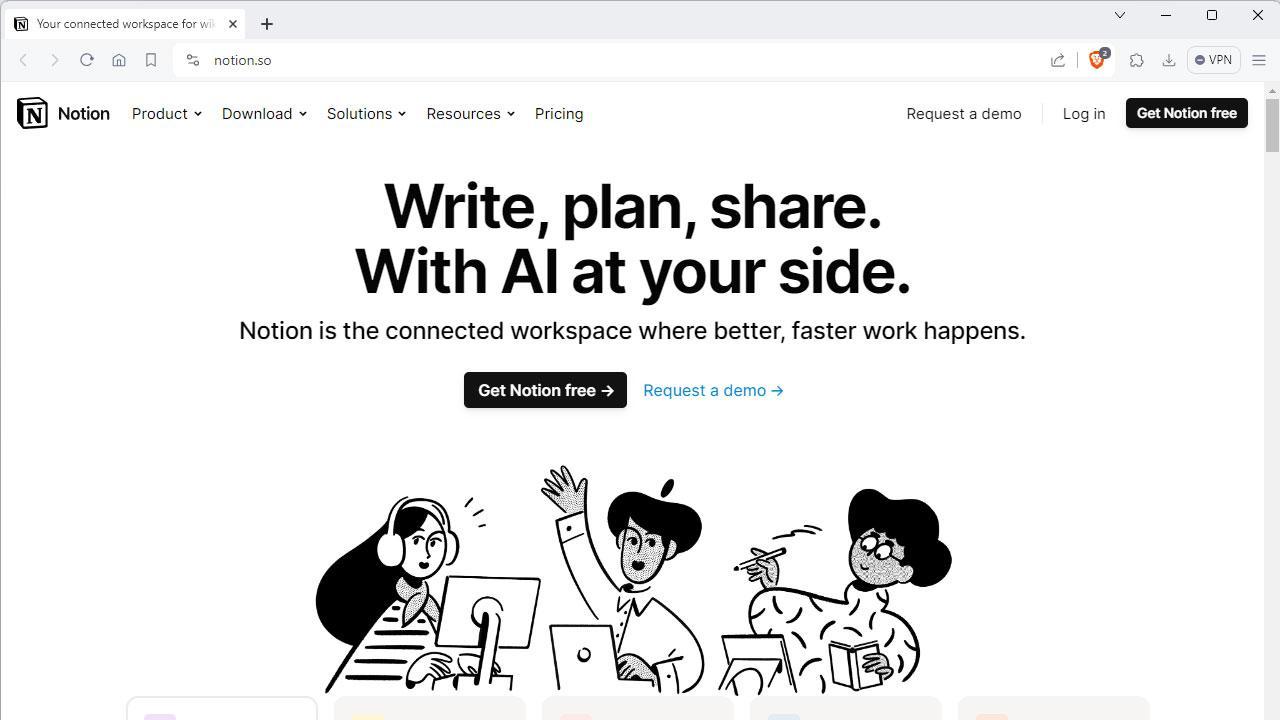
Notion blends AI content generation tools with project management and scheduling features to create a solid all-in-one package.
Why Is Notion Good for Your Recruiting Agency?
Where apps like Trello focus on the simpler side of project management, Notion covers everything. That can make it overwhelming – especially if you’re a recruiting agency software newbie – but it also means the tool is superb for refining workflows.
What Are Notion’s Key Features?
Notion’s main attraction is its project management suite, which lets you set tasks and goals on a calendar. Speaking of calendars, it also has a scheduling system for meetings. A more recent addition is AI – Notion is trying to become a ChatGPT competitor in the content creation space.
What Are Notion’s Main Drawbacks?
There’s just so much involved with Notion that you might not know where to start. That issue is made worse by the fact that it’s not specifically a recruiting agency tool. It would also be nice to see chat functionality – right now you can only notify teammates of project developments using @ comments.
What Is Notion’s Pricing?
The free version of Notion allows you to invite 10 people into a collaborative workspace, though you only get basic features. The paid tiers operate on a per-person, per-month basis. You’ll pay $10 for the “Plus” package, up to $18 for the “Business” tier.

.webp)





